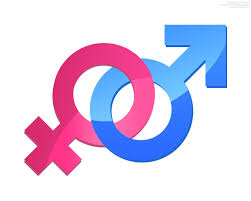I cringe a little every time I hear someone say, “God’s will”. The will of God is about more deeply discerning call. What is God calling me or us to do? How does God desire life in the world to be?
“God’s will” is often said with shrugged shoulders as a way to avoid deeper reasoning. A child dies. I guess it was God’s will. A house burns down. I guess it was God’s will. A violence inciting rapist rises to arguably the most powerful office in the world through Democratic vote. I guess it was God’s will. God’s will is often invoked when there is a sense of lost control.
The current political climate is not God’s will.
The Bible tells us that God desires: all people to live in harmony (Romans 12:18), justice and humility (Micah 6:8), peacemakers (Matthew 5:9), nothing to separate us from God’s love (Romans 8:35-39), to love one another (Mark 12:30-31), the Church to remove us and them attitudes (Galatians 3:28), and all people to follow the way of Truth and Life (John 14:6).
The current political climate is not the result of God’s will because fear-based dominance is not of God.
“For the Spirit God gave us does not make us timid, but gives us power, love and self-discipline.” (2 Timothy 1:7)
The current political climate is not the result of mysterious Divine workings. Racism, sexism, homophobia, transphobia, and xenophobia are the fuel of this domestic terror machine.
In the past 8 years, Americans and the world have watched a Black man be elected as president while simultaneously being reminded of the daily micro aggressions and full-scale violent assault of more African-Americans than most can bear to count. We have seen the rise of the Black Lives Matter movement. While there were 60,467,601 cracks in the glass ceiling, it was not enough to overcome the blatant sexism that denied the most qualified and capable presidential candidate in American history the Office of President.
In the past 8 years, there have been significant strides and setbacks for the LGBTQ community. Most notably: marriage equality, non-discrimination executive order, adoption rights, and school bathroom inclusion. We have also seen states discriminate in the name of religion while others have fought for marriage equality in the name of religion. Hate crimes against transgender and gender nonconforming people are on the rise, disproportionately impacting trans women of color.
In the past 8 years there has been a harsh revival of global xenophobia, especially against Latinos, Muslims, and Arabs. “Outsiders” are scapegoated as smoke and mirror in order to avoid introspection and responding to the brewing internal divide. American rejection of immigrants is the inheritance of the iron rule of entitlement and false ownership since 1492.
What is a Christian to do in the midst of the stench pile of complexly layered violent mistrust?
- Pray for enemies and those who persecute you (Matthew 5:44)
- Accurately identify if you are being persecuted or if you are troubled by a shift in power as white straight evangelicals are decentralized
- Ask yourself why you are troubled by someone who is a minority receiving similar opportunities and benefits as white straight evangelicals
- Remember you are God’s favorite and you were made in Gods image (Genesis 1:27)
- Remember the other is God’s favorite and made in God’s image (Genesis 1:27)
“You can safely assume that you’ve created God in your own image when it turns out that God hates all the same people you do.” –Anne Lamott
If all people are God’s favorite and made in the image of God, imago dei, then we are united in our shared humanity and in our shared a divine connection.
Please for unity during this tumultuous political season ring hollow as many people making this request have actively rejected, undermined, and lamented the recent gains of minorities rights’ progress. “Unity” is passive aggressive code for “shut up”. If there was sincere desire for unity, then fruits of active inclusion and support for minority rights would already be seen. We are united in our shared humanity and in our shared a divine connection.
Unity is not a concept and term to be wielded when convenient. Until white evangelicals see their rights as intertwined with the rights and sufferings of minorities, then there will be no unity.
“Nobody’s free until everybody’s free.” -Fannie Lou Hamer
“When they locked up the social democrats,
I remained silent;
I was not a social democrat.
When they came for the trade unionists,
I did not speak out;
I was not a trade unionist.
When they came for the Jews,
I remained silent;
I wasn’t a Jew.” -Martin Niemöller
The question worth pondering is if God is in control, then who’s God is it?
Is your God in control through demands and requirements? Is your God a warrior who destroys your enemies? Is your God a guide who cultivates compassion and charity?
Who your God is determines what type of leader you will choose and how you view authority.
God help us.
May God’s will of harmony, justice, humility, peacemaking, inclusion, love, truth, and life, be our unifying guide and standard as we respond to our own and our neighbors’ pain.
“The fruit of the Spirit is love, joy, peace, patience, kindness, generosity, faithfulness, gentleness, and self-control.” –Galatians 5:22-23a










